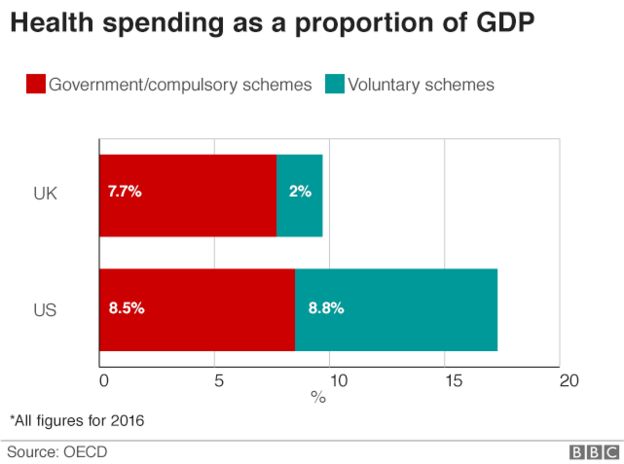- Joined
- Aug 12, 2014
- Messages
- 17,878
- Reaction score
- 4,064
And this is where I asked you for something supporting the argument that it's more expensive for the nation. It's not even a hard question to answer.
You simply find the per person spending on healthcare and compare it to nations with single payer models. We spend 17% of our GDP on healthcare. What do other nations spend and what do they get for it.
Take the U.K. for example. We spend similar amounts on government care as the NHS but far more on private care. I haven't seen a compelling argument that switching to a model similar to theirs would raise our total costs beyond what we pay now, only that if would leave us somewhere in between what we do and what they do.
https://www.bbc.com/news/uk-42950587
Here's the per capita number taking in private and public spending. Why would our per person spending increase?

Which is what I'm asking for. What's the basis for the argument that simplifying the payment structure and thus the overhead from our current model to a single payer model would increase the per capita or GDP costs to the entire nation?
Single payer would mean fewer staff hours spent dealing with insurance companies by providers. It would also mean fewer government hours spent verifying who is and isn't eligible for the various healthcare services provided by the government.
It would mean less capital spent on managing healthcare savings accounts and similar private means of deferring the tax costs of healthcare.
It would mean more taxes though. It couldn't be done on our current system without significant tax increases but I don't see the difference between paying for healthcare directly vs. paying for healthcare via taxes so long as you're still paying for the same end stage care.
I have already addressed the cost of Medicare for America. It is an inefficient government program that would strangle the Health Care industry financially if it was paying its current reimbursement rates for 100% of American patients across the board.


